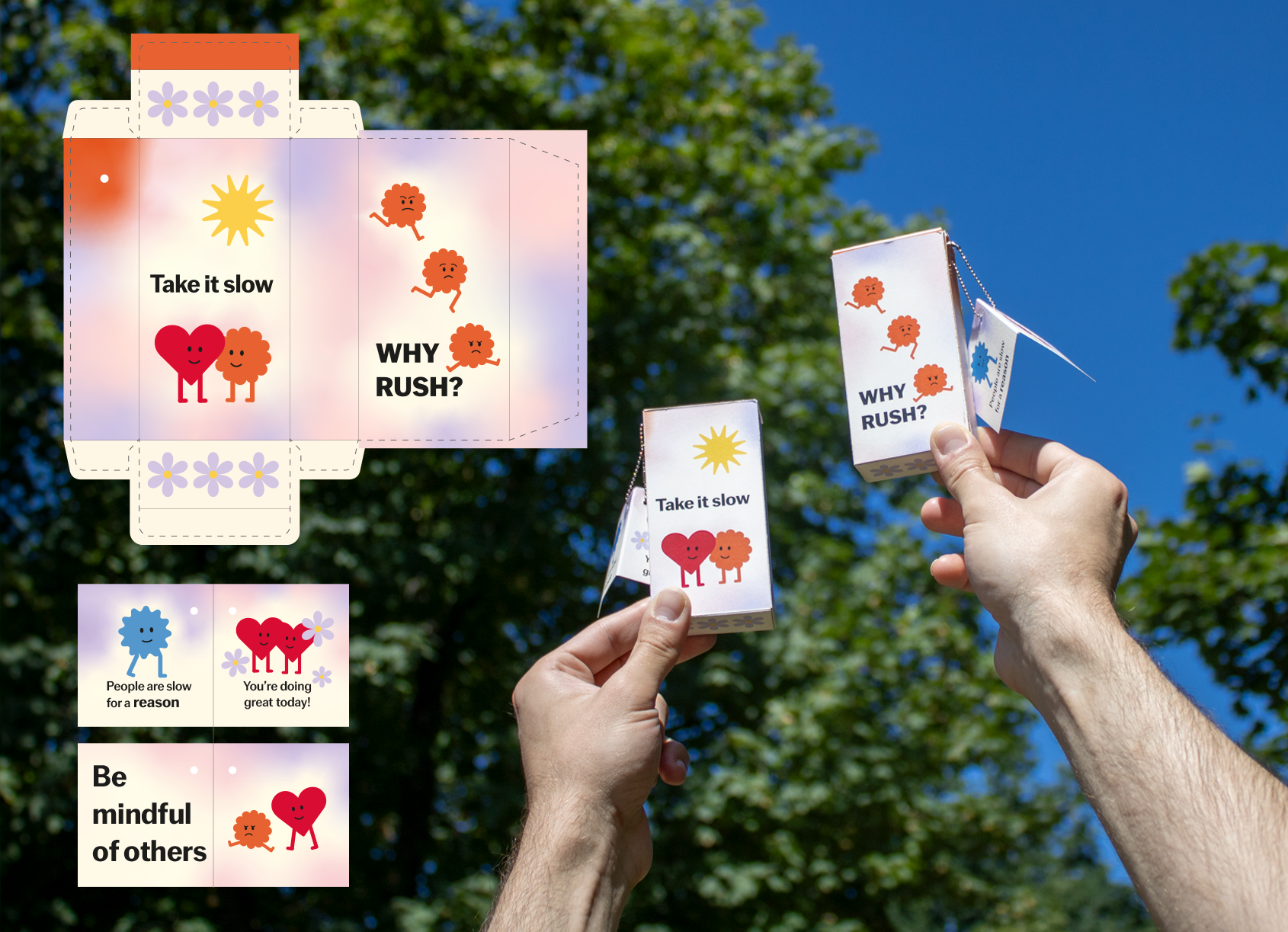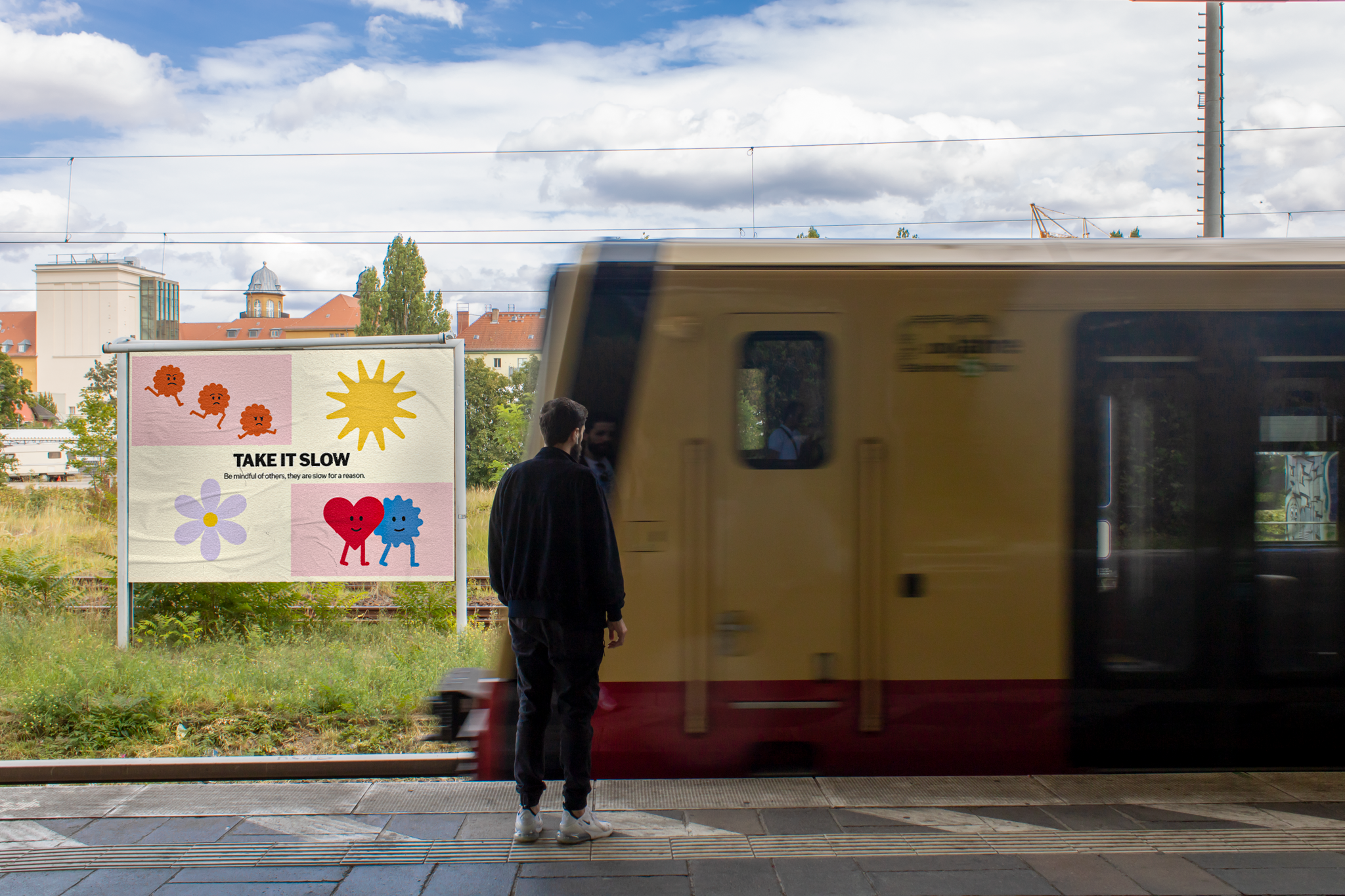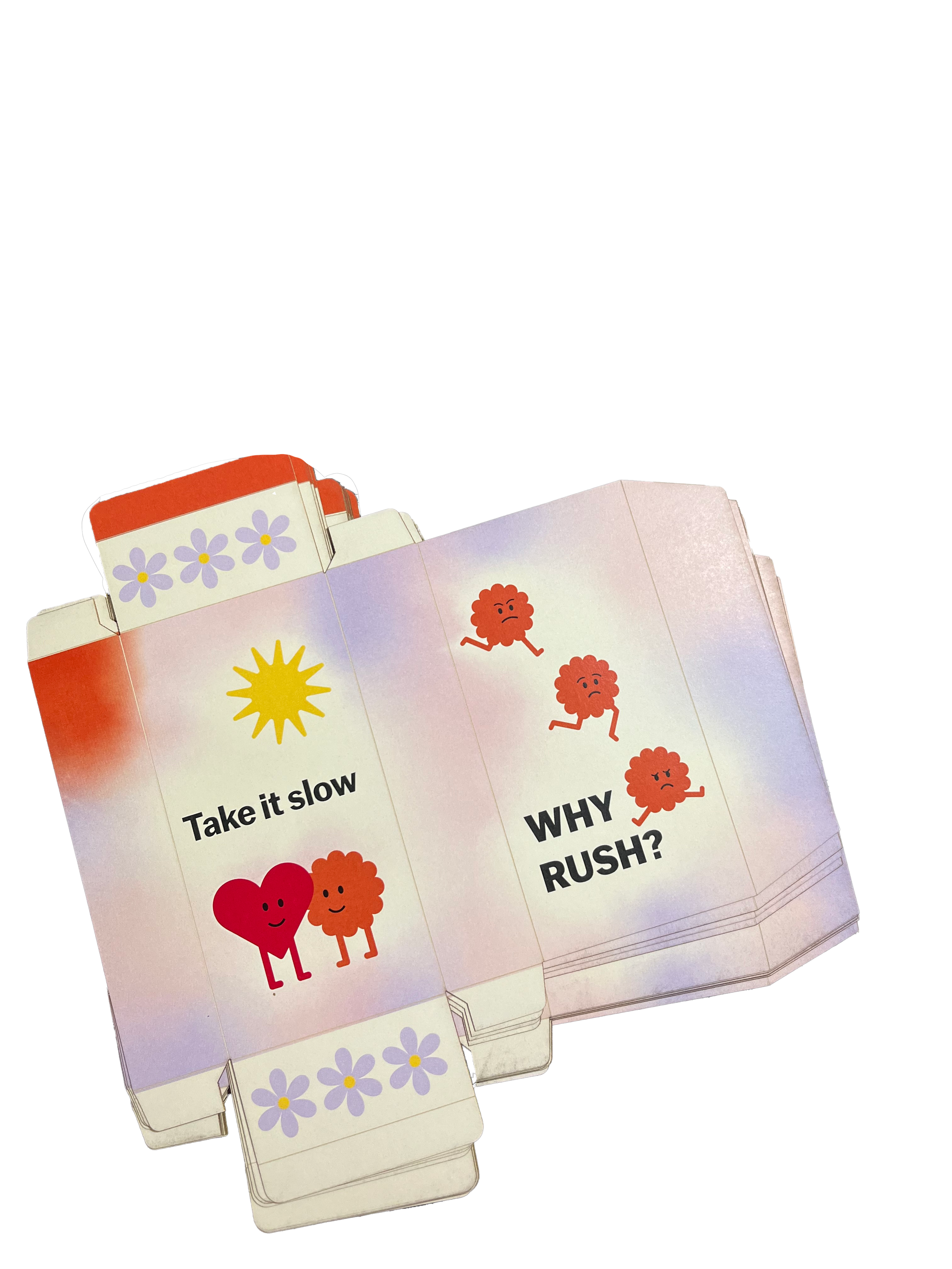Mindfulness in a hectic world
Behavioral Design / Experience Design / Concept / Research
Bachelor's thesis 2024
Supervised by Prof. Dr. Jona Piehl & Gisela Matthes
People only change their behavior through consistency and repetition.
Raising awareness to promote more mindfulness is a first step, but real behavioral change in society begins with individuals and their own self reflection.
Traditional campaigns often fall short in this regard.
That's why I connected my message for more consideration toward others with an everyday object: the tissue box.
By using the tissues daily, change is slowly achieved through repetition.
User journey map
The users use the gift daily and are confronted with the message each time. The daily repetition of the cycle slowly leads to changes.
Did the information on the tissue and the booklet make you reflect?
An interactive campaign to invoke behavioural change.
We rush from one place to the next, driven by the stress of the capitalist world.
This lifestyle benefits no one, especially not people with invisible disabilities.
The healthy-looking person walking slowly in front of us in the U-Bahn could be living with a chronic illness or recovering from surgery, and we wouldn't know it.
How do I create mindfulness in public transport without stigmatizing or harming people with disabilities?
Amidst the hustle and bustle of public transport, a personal encounter takes place and a free tissue with the campaign is received.
Users are exposed to the campaign on public transport, reinforcing the message.
Key Takeaways
The results confirmed that shifting the focus from disability to mindfulness for all was the right approach. The goal was to create a sense of safety and inclusion for all public transport passengers. People could personally identify with the campaign and took more time instead of rushing.
I also found out that women feel more stressed out on public transport than men.
The campaign could be fully integrated into public transport to link the positive message to mass transit and encourage mindfulness towards others.
Yes
77.%
More than 70 percent of the testers reported a calmer and slower change in their hectic everyday lives.
Change happens gradually. They reflect on their behavior and reach a point of change.







